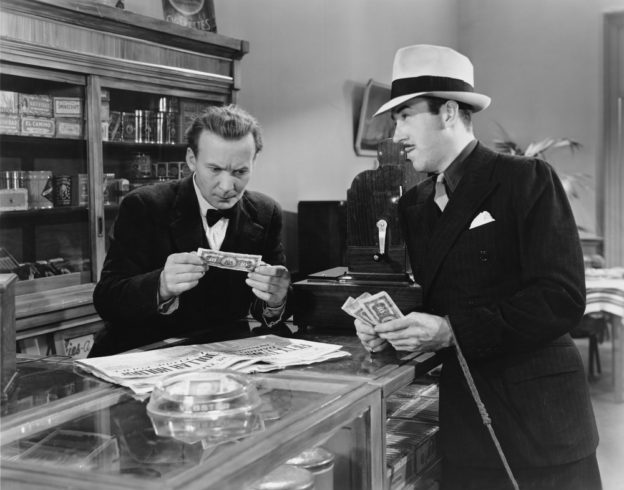Among the flurry of “new year, new me” sentiments, there’s one thing that often gets overlooked: the value of tried and true. There’s a lot of outdated advice in the world of personal finance — things your grandparents believed that maybe don’t apply so much anymore. However, there are a number of old-school personal finance habits that still test true.
So, while it’s great to try new methods of saving money, there are some tactics that withstand the test of time.
Keep a household budget
The old-school approach involves housewives keeping track of the finances of the entire household. This has changed into an activity that partners work on together. However, it’s still important to keep track of how much each person is spending.
While this tip might not seem like it will save money, you’ll be more conscious of the things you purchase, and you’ll be avoiding paying for unnecessary expenses.
This tip will save your household from buying unnecessary groceries, which only counts toward a few dollars. However, you might end up catching your partner making a large purchase that they don’t need to make. For example, you might be able to stop your partner from paying for additional insurance for airline tickets.
Empty loose change into a jar
According to the old-school personal finance mentality, a penny saved is a penny earned. Instead of disregarding your pocket change, put it in a jar to save it up for a good time.
That extra change might not seem like a lot at first, but it will add up over time to cover the cost of a night on the town. Instead of spending your paycheck on fun activities, you will be saving money by spending the change you’ve been collecting.
Keep cash on hand
Even though it’s convenient to have a debit card in your wallet, many people have a problem with overspending because they have instant access to their bank accounts. Credit cards are just as tempting.
The old-school mentality is to have cash in your wallet to cover the purchases that you will need to make. When you need more cash to make more purchases, you will go to the ATM. This will help you keep track of your spending.
Depending upon your current spending habits, you’ll be able to save anywhere between a few dollars each month (spent on junk you don’t need) to hundreds of dollars spent on unnecessary clothing and jewelry.
Live below your means
Living below your means might sound like you’re going to live an unfortunate lifestyle, but you will still find ways to have fun and enjoy life. Instead of borrowing money to support an elaborate lifestyle, the old-school mentality dictates that you should save money for your future.
You’ll have less stress when you know that you’re able to pay your bills. Lower the debt that you have by altering the way you live. This habit will save you all the money you’ve been spending on drinks, dinner, and entertainment.
This tip doesn’t just apply to small purchases, either. If you live alone, ask yourself if you really need to spend extra money for rent on a one-bedroom apartment in a chic part of town, or if you can make it work in a studio apartment a little farther from nightlife for less.
Ideally, rent accounts for 30% of your monthly income, but you might be able to get it to 25% if you’re willing to opt for a smaller place and live slightly beneath your means. That leaves you an additional 5% of your income for savings, small purchases, and investments in your well-being.
Choose quality over affordability
The convenience of purchasing items over the internet has caused many consumers to buy low-quality items because of a low price point. Old-school habits revolve around making purchases based upon the quality of the item.
If it’s well-made, it might be worth spending a few extra dollars on the purchase because the item will last longer. Cheap merchandise might sound like a wise buying decision at first, but cheap products use materials that aren’t made to last.
This habit will save you anywhere from a few dollars to a few thousand dollars. A quality knife lasts longer in the kitchen, and a good quality car will give you less troubles on the road.

